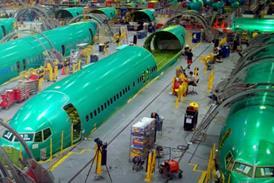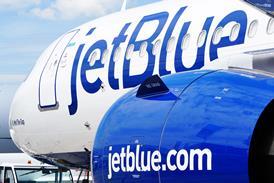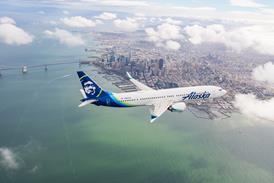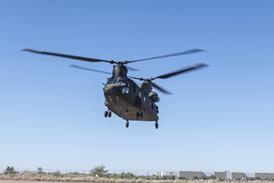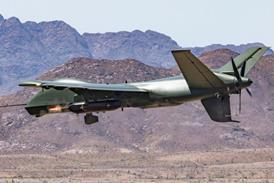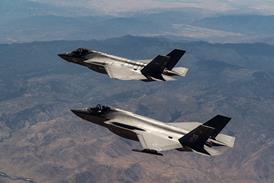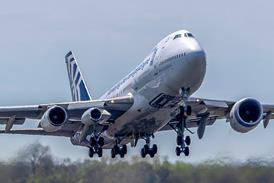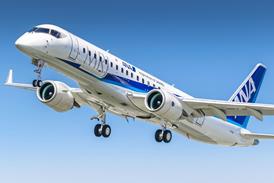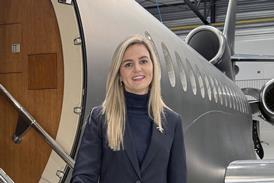Embraer will likely continue production of its current-generation E-Jets even as the company begins producing and delivering comparable versions of its next-generation E-Jet E2s, says a top Embraer executive.
In an interview with Flightglobal, Luis Carlos Affonso, chief operating officer of Embraer's commercial aviation division, lays out more details about the company's production plans. He also insists E2 development remains on track, though concedes some of the most difficult work lies ahead.
Affonso says the production overlap will likely last about three years as the company ramps up production of its three models of E2s. But he says the overlap for each model will "most probably [be] just one year".
"Maybe the airlines want to have more 190s and we are still in the ramp up, and we cannot produce as many E2s," says Affonso. "If the demand is significant but we cannot fill it with the E2s, then we will offer the E1."
Thought the term "E1" does not exist in Embraer's official lexicon, it refers to the line of current-generation E-Jets, the E170, E175, E190 and E195.
Embraer is now upgrading those models to improve efficiency, but they will be replaced with the in-development E2s, which will have redesigned engines and wings. Embraer predicts E2s will be 16% to 24% more fuel efficient than current E-Jets and cost 10% to 20% less in maintenance.
Affonso says the E2 programme is progressing on schedule, noting that parts and assembly designs are nearly complete, while parts manufacturing is "well advanced". In addition, company has started building structural sub-assemblies, Affonso says.
First flight is still scheduled for the second half of 2016. The company expects to begin delivering E190-E2s in 2018, E195-E2s in 2019 and E175-E2s in 2020. The E175-E2 will replace both the current E170 and E175.
Asked if the programme has encountered unforeseen problems, he replies: "Nothing beyond the normal convergence of the design at this stage".
"The main challenges start to happen when you assemble and get ready to fly, but the integration went very well among all systems," Affonso says.
He adds that labour relations remain strong despite a brief labour strike at the Sao Jose dos Campos factory last year.
"The vast majority of our employees, they are very much pro-Embraer," he says. "That strike was a little bit forced by the unions. The employees wanted to get in the company but they could not get access."
Source: Cirium Dashboard

